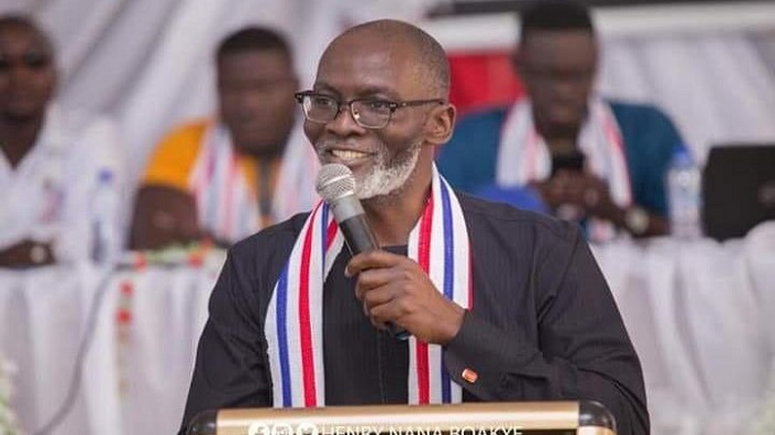Listen to the article
In a dramatic shift from previous electoral patterns, Ghana’s 2024 presidential election revealed significant changes in voting behavior across two key regions, according to an analysis of Electoral Commission data that fact-checks recent claims made by prominent New Patriotic Party (NPP) member Gabby Asare Otchere-Darko.
Otchere-Darko, addressing NPP members in the United Kingdom on October 4, made several assertions about voting patterns in the Ashanti and Greater Accra regions that have now been scrutinized for accuracy.
The NPP stalwart claimed that despite an influx of new voters in the Ashanti Region, the opposition National Democratic Congress (NDC) only increased their vote total by about 30,000 compared to 2020, while securing approximately 33% of total votes cast in the region. He further asserted that in Greater Accra, the NPP’s traditional stronghold, John Mahama received fewer votes than in 2020, with a margin of about 700,000 votes between the two parties.
Official Electoral Commission data reveals a mixed verdict on these claims. The NDC indeed captured approximately 33.1% of total votes in the Ashanti Region in 2024, confirming Otchere-Darko’s first assertion. The opposition party received 697,076 votes out of the 2,106,109 total votes cast in the region.
However, his claim that the NDC added only 30,000 votes to their 2020 tally in the Ashanti Region is inaccurate. The data shows the NDC actually increased their vote count by 43,927, rising from 653,149 in 2020 to 697,076 in 2024 – a more substantial increase than suggested.
The NPP meanwhile experienced a significant decline in its Ashanti Region support, dropping from 1,795,824 votes in 2020 to 1,366,800 in 2024, a concerning development for a party that has traditionally dominated this area.
In Greater Accra, Otchere-Darko’s assertion that John Mahama received fewer votes in 2024 than in 2020 is accurate. The NDC presidential candidate’s support declined from 1,326,489 votes to 1,260,832 votes, a reduction of 65,657 votes. This unexpected loss of support in Ghana’s most populous region represents a surprising development for the NDC.
However, Otchere-Darko overstated the margin between the two parties in Greater Accra. The actual difference was 579,297 votes (1,260,832 for NDC versus 681,535 for NPP), not the approximately 700,000 he claimed.
The NPP’s performance in Greater Accra showed an alarming decline, with their vote total plummeting from 1,253,179 in 2020 to just 681,535 in 2024 – a loss of over half their previous support.
These electoral shifts highlight evolving political dynamics in Ghana, with the NPP losing significant ground in both regions while the NDC experienced a modest gain in the Ashanti Region despite a slight decline in Greater Accra.
Political analysts suggest these changes may reflect voter responses to economic challenges faced during the NPP government’s second term, including inflation pressures and currency depreciation that affected many urban voters, particularly in Greater Accra.
The election results indicate a potential realignment in Ghana’s political landscape, with traditional regional voting patterns showing signs of fluidity as both parties face the challenge of maintaining their core support bases while appealing to an increasingly discerning electorate.
As Ghana moves forward under new leadership, these shifting voting patterns will likely influence political strategies and policy priorities for both major parties in the coming years.
Fact Checker
Verify the accuracy of this article using The Disinformation Commission analysis and real-time sources.




10 Comments
The shift in voting behavior across regions is quite intriguing. I’m curious to learn more about the factors that may have contributed to these changes, beyond just the raw vote totals. Contextual analysis around demographic shifts, campaign strategies, and other regional dynamics could provide valuable insights.
Absolutely, digging deeper into the nuances and potential drivers behind the voting patterns would be very informative. A comprehensive analysis could shed light on the evolving political landscape in Ghana.
Interesting analysis of the electoral claims made by Gabby Otchere-Darko. It’s important to closely examine voting patterns and fact-check any assertions, especially around key regions like Ashanti and Greater Accra. Data transparency and rigorous analysis are crucial for understanding the true dynamics of Ghana’s elections.
It’s encouraging to see efforts to critically examine political claims and verify them against official data. This level of scrutiny is essential for upholding democratic principles and fostering informed public discourse. The Disinformation Commission’s work is a valuable service to the Ghanaian people.
The mixed verdict on Otchere-Darko’s claims underscores the complexity of electoral dynamics. While some assertions were accurate, others merit further investigation. Fact-checking initiatives like this help ensure a more transparent and well-informed public discourse around elections.
Absolutely. Maintaining a healthy, fact-based dialogue around elections is vital for the strength of Ghana’s democracy. This kind of balanced analysis is a welcome contribution to that effort.
The shifts in voting patterns across Ashanti and Greater Accra regions are intriguing and merit deeper exploration. Understanding the nuances behind these changes could provide valuable insights into the evolving political landscape in Ghana. Fact-checking initiatives like this help build trust in the electoral process.
While the NPP stalwart made some claims that were accurate based on the Electoral Commission data, it’s good to see a fact-checking effort to verify the details. Maintaining objectivity and evidence-based assessments is crucial for strengthening democratic processes.
This fact-checking exercise demonstrates the importance of verifying claims, even from prominent political figures. While some of Otchere-Darko’s assertions were accurate, others required further scrutiny. Maintaining a commitment to evidence-based analysis is crucial for strengthening Ghana’s democratic institutions.
This fact-checking exercise highlights the importance of scrutinizing political rhetoric, even from influential figures. Rigorous, impartial analysis of the data can help the public make more informed decisions and hold leaders accountable. Kudos to the Disinformation Commission for this thorough review.